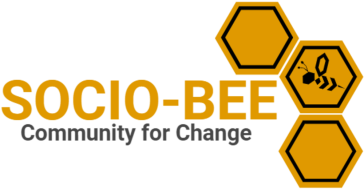In the nineties of the last century, a lot of (ICT) incubators started in the Netherlands, many private (GorillaPark, Ant Factory, Lost Boys and Newconomy), some public, such as Twinning. Most of them stopped early this century or gone bankrupt. From 2005 university incubators like YesDelft!, Erasmus MC Incubator, UtrechtInc, Biopartner and ACE opened their doors to students which operate alongside the curriculum. Afterwards also incubators of colleges aroused, often integrated with education. Enterprize of the The Hague University of Applied Science was one of the first ones. In recent years, all kinds of private initiatives arises, called Accelerators (Rock Start and Start-Up Boot Camp). The primary purpose of an incubator is to create successful entrepreneurs, for different reasons. Much research has been done to the success rate of companies through incubators. It is assumed that the entrepreneur of a successful business should have learned a lot in this initial period. In the emerged entrepreneurial education it is therefore assumed that incubators also should be a good tool for students to quickly and efficiently learn. But is that so? As a successful serial entrepreneur, I started more than ten incubators. Most of them were a tool for regional development, cluster development or for further investments (private equity). Now he wanders if an incubator can also be a tool for teaching. He has been given the opportunity to researche this at the The Hague university for applied sciences; “What is the (added) value for entrepreneurship education of an incubator?” This paper is a preamble to that research and a call for participation.
http://dx.doi.org/10.14261/postit/0AC5BB0E-3951-48E2-B00D49D5194985A7In 2015 and 2016, Saxion University of Applied Sciences organized the 2nd and 3rd edition of the Regional Innovation and Entrepreneurship Conference (RIEC).University Business Incubators (UBI) are being considered spatial clusters (Pont & van der Meer, 2012) in which entrepreneurship and innovation is stimulated based on academic knowledge. However, research has shown that most Business Incubators (BI’s) do not meet expectations. Therefore a new BI sub-type will be presented called the ‘Student Driven Business Incubator’ (SDBI), which is mainly managed and driven for and by students. This type of BI is based on a hybrid management approach between bottom up management by students and top down guidance by the parent organization.
MULTIFILE

De gemeente Groningen kent een rijk vestigingsklimaat voor kleinschalige creatieve en innovatieve bedrijvigheid. Het lectoraat Vastgoed heeft dit ecosysteem van creatieve broedplaatsen, culturele hotspots, startup-incubators en innovatieclusters in opdracht van de gemeente geïnventariseerd. Deze kaart geeft een overzicht van de variëteit aan makersplekken in de stad, in relatie tot onder meer werkgelegenheid en voorzieningen in de culturele en kennisinfrastructuur.

In opdracht van de gemeente Groningen heeft het lectoraat Vastgoed een actueel totaaloverzicht gemaakt van de creatieve en innovatieve werklocaties in de stad: kortweg ‘broedplaatsen’. Deze plekken omvatten het volledige spectrum van ateliergebouwen tot en met startup-incubators: van creatief tot innovatief, en van cultureel tot commercieel. De inventarisatie bestond uit het in kaart brengen van het huidige locatieaanbod en het spiegelen van de toekomstbestendigheid hiervan in het licht van de verwachte ontwikkelingen aan vraag- en aanbodzijde op middellange termijn.
SOCIO-BEE proposes that community engagement and social innovation combined with Citizen Science (CS) through emerging technologies and playful interaction can bridge the gap between the capacity of communities to adopt more sustainable behaviours aligned with environmental policy objectives and between the citizen intentions and the real behaviour to act in favour of the environment (in this project, to reduce air pollution). Furthermore, community engagement can raise other citizens’ awareness of climate change and their own responses to it, through experimentation, better monitoring, and observation of the environment. This idea is emphasised in this project through the metaphor of bees’ behaviour (with queens, working and drone bees as main CS actors), interested stakeholders that aim at learning from results of CS evidence-based research (honey bears) and the Citizen Science hives as incubators of CS ideas and projects that will be tested in three different pilot sites (Ancona, Marousi and Ancona) and with different population: elderly people, everyday commuters and young adults, respectively. The SOCIO-BEE project ambitions the scalable activation of changes in citizens’ behaviour in support of pro-environment action groups, local sponsors, voluntary sector and policies in cities. This process will be carried out through low-cost technological innovations (CS enablers within the SOCIO BEE platform), together with the creation of proper instruments for institutions (Whitebook and toolkits with recommendations) that will contribute to the replication, upscaling, massive adoption and to the duration of the SOCIO-BEE project. The solution sustainability and maximum outreach will be ensured by proposing a set of public-private partnerships.For more information see the EU-website.
